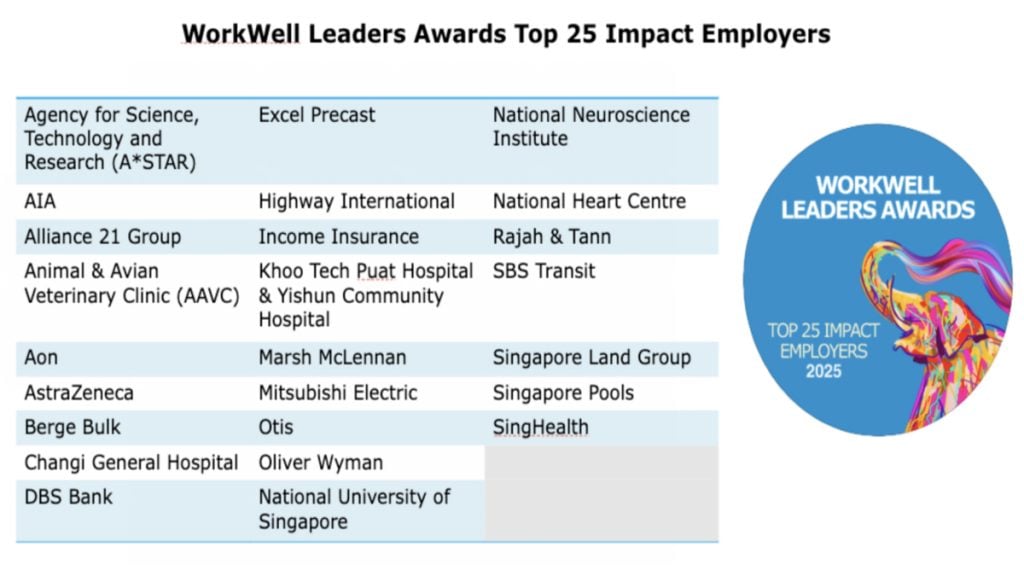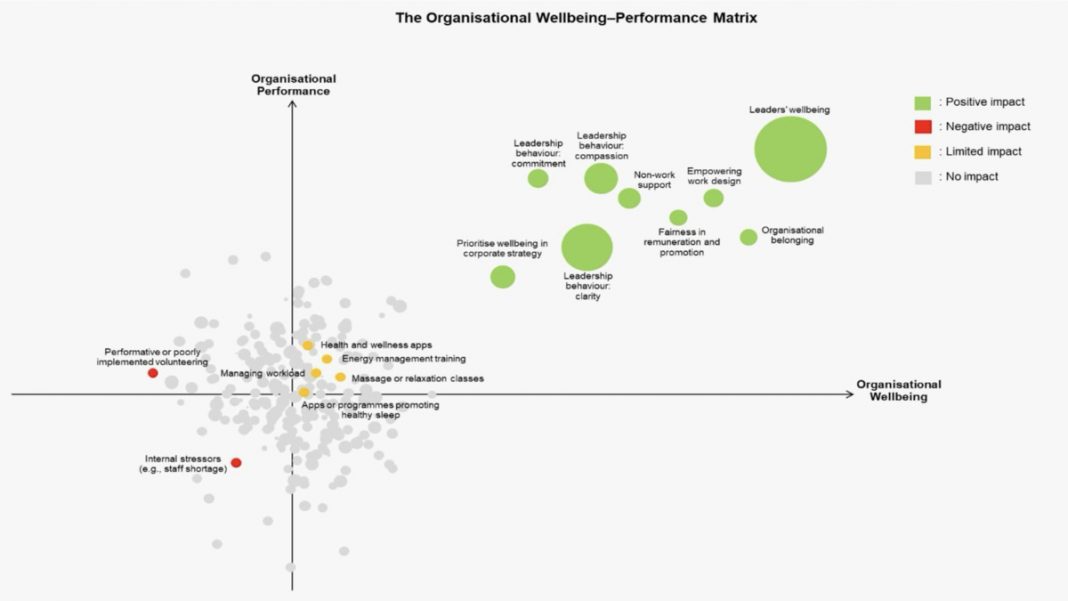SINGAPORE: Leader well-being was seen as the most significant driver of organisational well-being and the strongest predictor of overall business performance, according to the recent study commissioned by Singapore-based registered charity and Institution of a Public Character (IPC) WorkWell Leaders, in partnership with the National University of Singapore (NUS).
The study was also supported by the Bank of Singapore, BinjaiTree, the Health Promotion Board and the National Council of Social Service.
The study WorkWell Leaders Impact Measure, which analysed over 200 factors organisation-wide, revealed that leader well-being has 11 times more impact on organisational performance than employee participation in stress management and resilience programmes and four times more impact than the use of employee well-being apps, which are common in many organisations.
Dr Reuben Ng, principal researcher on the study Ignoring these factors isn’t just a missed opportunity; it’s a significant business risk, said, “We found that meaningful improvements in well-being are impacted less by well-being support programmes and more by leadership behaviours and broader factors like work design, sense of belonging and psychological safety.”
Leader well-being was defined as the overall mental, emotional, physical, and social health of CEOs and leaders. It was also found to be the third most important factor influencing organisational performance, with organisational well-being itself being the top factor for performance.
Nearly 50% of respondents said that their organisation follows the Tripartite Advisory on Mental Health and Well-being at Workplaces. However, there is a growing expectation for leaders to “walk the talk”.
While leaders may talk about values such as compassion, courage, commitment, and clarity, it is the way these values are demonstrated through daily actions that truly makes a difference.
For instance, practising compassion has six times the impact on organisational well-being compared to just talking about it, the report noted. Also, when leaders prioritise well-being alongside business metrics, it improves organisational well-being by 60% more than simply paying lip service.
Professor Chua Hong Choon, CEO, Khoo Teck Puat Hospital and Yishun Community Hospital, said, “When leaders are well, they model healthier behaviours, make better decisions, create psychologically safe cultures, and build more resilient, high-performing organisations.”
Anthea Ong, founder and chairperson of WorkWell Leaders, said, “Organisations have long struggled to truly understand what drives well-being. Time and again, we’ve heard from CEOs that despite growing investments, well-intentioned programmes haven’t delivered meaningful impact. Now, for the first time, we have a science-backed study that not only offers clear direction on what to prioritise — but also makes a compelling business case: organisational well-being is the most critical driver of overall performance.”
The study’s findings were announced last Thursday (April 24) at the third annual WorkWell Leaders Awards Gala, attended by 400 CEOs, their teams, and leaders from key government and community sectors. The awards set the national standard for workplace well-being and leadership. Besides the awardees announced at the gala, for the first time, the Top 25 Impact Employers were also announced, listed as follows:

For more details on the study, read the WorkWell Leaders Impact Measure white paper here. /TISG

